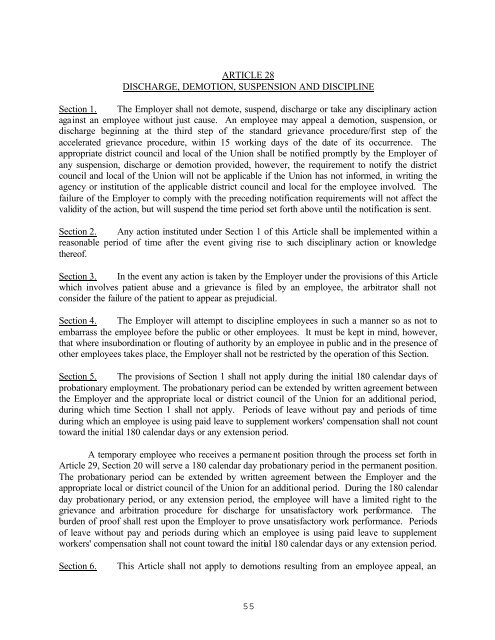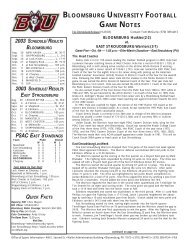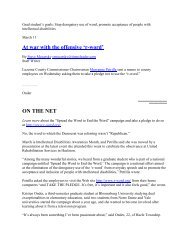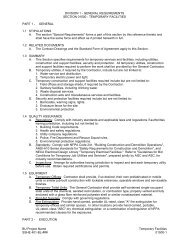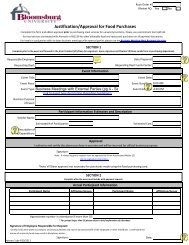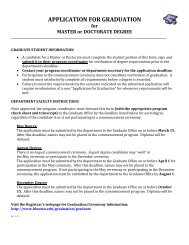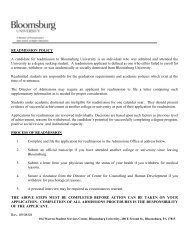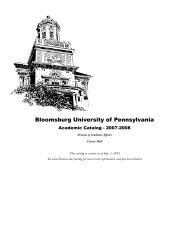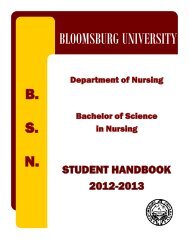EXHIBIT 28 Collective Bargaining Agreements With Unions ...
EXHIBIT 28 Collective Bargaining Agreements With Unions ...
EXHIBIT 28 Collective Bargaining Agreements With Unions ...
Create successful ePaper yourself
Turn your PDF publications into a flip-book with our unique Google optimized e-Paper software.
ARTICLE <strong>28</strong><br />
DISCHARGE, DEMOTION, SUSPENSION AND DISCIPLINE<br />
Section 1. The Employer shall not demote, suspend, discharge or take any disciplinary action<br />
against an employee without just cause. An employee may appeal a demotion, suspension, or<br />
discharge beginning at the third step of the standard grievance procedure/first step of the<br />
accelerated grievance procedure, within 15 working days of the date of its occurrence. The<br />
appropriate district council and local of the Union shall be notified promptly by the Employer of<br />
any suspension, discharge or demotion provided, however, the requirement to notify the district<br />
council and local of the Union will not be applicable if the Union has not informed, in writing the<br />
agency or institution of the applicable district council and local for the employee involved. The<br />
failure of the Employer to comply with the preceding notification requirements will not affect the<br />
validity of the action, but will suspend the time period set forth above until the notification is sent.<br />
Section 2. Any action instituted under Section 1 of this Article shall be implemented within a<br />
reasonable period of time after the event giving rise to such disciplinary action or knowledge<br />
thereof.<br />
Section 3. In the event any action is taken by the Employer under the provisions of this Article<br />
which involves patient abuse and a grievance is filed by an employee, the arbitrator shall not<br />
consider the failure of the patient to appear as prejudicial.<br />
Section 4. The Employer will attempt to discipline employees in such a manner so as not to<br />
embarrass the employee before the public or other employees. It must be kept in mind, however,<br />
that where insubordination or flouting of authority by an employee in public and in the presence of<br />
other employees takes place, the Employer shall not be restricted by the operation of this Section.<br />
Section 5. The provisions of Section 1 shall not apply during the initial 180 calendar days of<br />
probationary employment. The probationary period can be extended by written agreement between<br />
the Employer and the appropriate local or district council of the Union for an additional period,<br />
during which time Section 1 shall not apply. Periods of leave without pay and periods of time<br />
during which an employee is using paid leave to supplement workers' compensation shall not count<br />
toward the initial 180 calendar days or any extension period.<br />
A temporary employee who receives a permanent position through the process set forth in<br />
Article 29, Section 20 will serve a 180 calendar day probationary period in the permanent position.<br />
The probationary period can be extended by written agreement between the Employer and the<br />
appropriate local or district council of the Union for an additional period. During the 180 calendar<br />
day probationary period, or any extension period, the employee will have a limited right to the<br />
grievance and arbitration procedure for discharge for unsatisfactory work performance. The<br />
burden of proof shall rest upon the Employer to prove unsatisfactory work performance. Periods<br />
of leave without pay and periods during which an employee is using paid leave to supplement<br />
workers' compensation shall not count toward the initial 180 calendar days or any extension period.<br />
Section 6. This Article shall not apply to demotions resulting from an employee appeal, an<br />
55


